Report card course
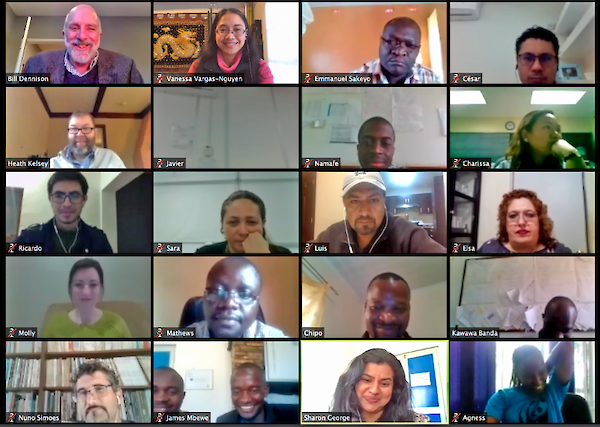
The 2019 Healthy Rivers for All course is underway! 22 students from Africa, Mexico, and the Philippines are learning how to create ecosystem health report cards through a virtual, flipped-classroom approach. Bill, Heath, and Vanessa meet with students on line each week to review recorded lectures and engage through instructive activities.
New release: Drought in the U.S.- Affiliated Pacific Islands
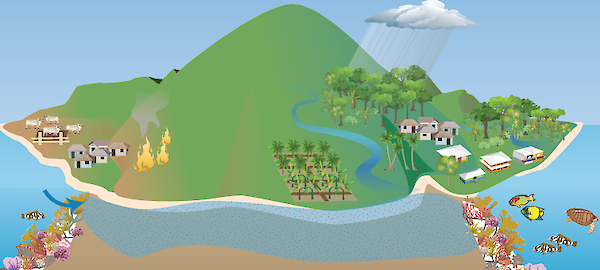
US Affiliated Pacific Islands. In 2015, IAN began a national-scale effort with the USGS National Climate Adaptation Science Center (NCASC) to synthesize the impacts of ecological drought across the country. Workshops were held at each of the nation’s eight regional Climate Adaptation Science Centers covering the following regions: Alaska, Pacific Islands, Northwest, Southwest, North Central, South Central, Northeast, and Southeast. During the Pacific Islands workshop in March 2017 in Honolulu, Hawaii, it became clear that the high islands of the Hawaiian archipelago were not representative of the diverse U.S.-Affiliated Pacific islands (USAPI), and so a ninth workshop was planned to capture aspects of drought in the islands. This newsletter highlights the outcomes of a two-day workshop held in Honolulu, focusing on past, current, and future impacts of drought throughout the USAPI.
Verde River, AZ
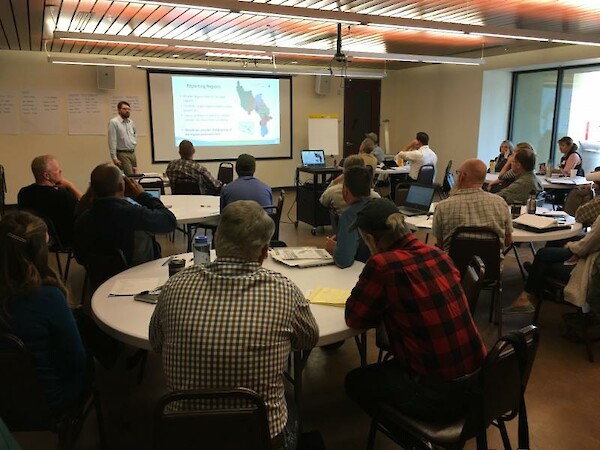
Heath Kelsey and Andrew Elmore traveled to Camp Verde, Arizona to work with stakeholders from the National Forest Service, Friends of the Verde River, and The Nature Conservancy on a Verde River Report Card. This was our second workshop, which was designed to continue the process of selecting indicators, identifying data sources, and grading. Excellent progress was made in these areas due to the tremendous engagement we experienced with our project partners.
Texas Coast Report Card released!
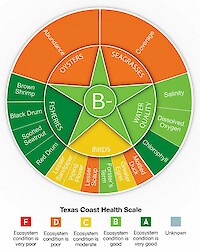
Texas, USA. The Texas Coast Ecosystem Health Report Card was released on May 29, which graded Texas Coast Ecosystems at a B-. Key messages from the report card were that oyster reefs continued to struggle after the extreme rainfall from Hurricane Harvey. Seagrasses also struggle in some areas from poor water quality. Coastal fisheries, however, have been improving steadily. The project was funded through the State of Texas and was a partnership between Harte Research Institute and UMCES.
Merida, Mexico!
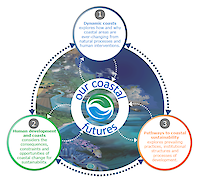
Heath Kelsey gave a keynote address at the First Coastal Resilience Symposium held June 19-21, 2019 in Merida, Yucatan, Mexico. The meeting brought together a diverse, international group of experts in coastal science, engineering, and management to discuss coastal resilience and sustainability. Heath's talk focused on an initiative of Future Earth Coasts called, "Our Coastal Futures".
Gulf of Mexico Coral Reef Report Card
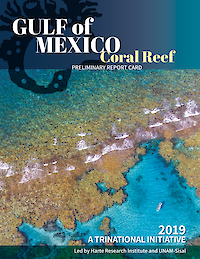
The Harte Institute and the University of Mexico at Sisal released the first-ever report card on the condition of coral reef ecosystems in the Gulf of Mexico. The report card involved representatives from the US, Mexico, and Cuba.
Maryland Coastal Bays Report Card Released
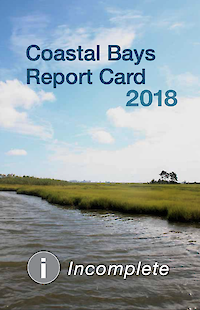
Ocean City, MD, USA. Bill Dennison and Heath Kelsey presented the 2018 Coastal Bays Report Card on Monday, September 23, at the Marlin Club in West Ocean City, Maryland. Data for two of the six indicators were unavailable for the 2018 Report Card, which meant that the Coastal Bays received an Incomplete this year. Water quality results declined from 2017, because of very high rainfall, which was the third highest on record, and increased nutrient input to Coastal Bays. The problems in collecting seagrass data also illustrate the challenges of monitoring under climate change influences. Seagrass information is collected by aerial imagery, which requires specific conditions that were hampered by increased cloud cover.
Future Earth Coasts
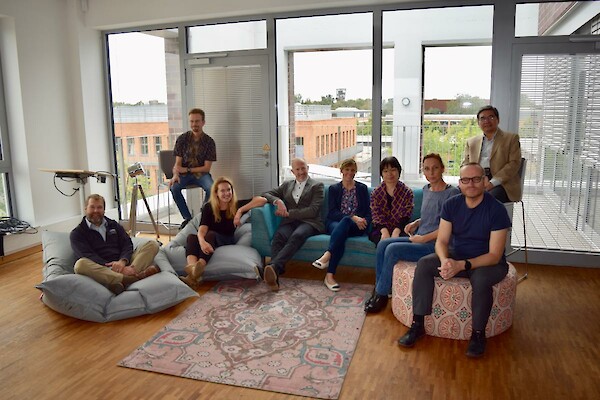
Heath Kelsey met with the other members of the Future Earth Coasts Executive Committee in Bremen, Germany from September 11-13. Future Earth Coasts’ goal is to strengthen the science-policy interface and contribute to securing sustainable coastal communities. One highlight from the discussions is the next Open Science Conference called ‘Our Coastal Futures’, which will be hosted in October 2020 at the Gold Coast Campus of Southern Cross University in Australia. The conference will focus on integrating all knowledge types, and is an official United Nation endorsed event towards the UN Decade of Ocean Science for Sustainable Development.
Belmont Forum Newsletters released
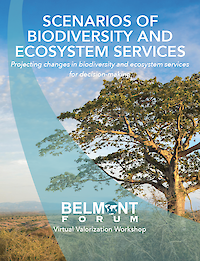
Convened by the Belmont Forum and facilitated by the University of Maryland Center for Environmental Science, the Belmont Tripartite Valorization workshop and Biodiversity I CRA virtual synthesis workshop served as the end term meeting for the Food Security and Land Use Change Collaborative Research Action (CRA), Biodiversity I CRA, and mid-term meetings for the Arctic Observing and Science for Sustainability and Mountains as Sentinels of Change CRAs. The Workshop reports, Understanding Responses to Global Change, and Scenarios of Biodiversity and Ecosystem Services, provide a brief overview of each project, identify common themes that emerged, and provide recommendations for future Belmont Forum Projects.
Lower Kafue River Basin Report Card
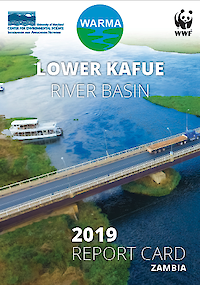
Our partners at World Wildlife Fund Zambia released the Lower Kafue River Basin Report Card. Overall, the basin received a score of C (49).
Lower Kafue River Basin Report Card released

September 25 was World Rivers Day. Our partners at World Wildlife Fund Zambia combined that celebration with the release of the Lower Kafue River Basin Report Card. The Kafue River runs north to south through Zambia and has a watershed of over 60,000 square miles. Overall, the basin received a score of C (49), combining indicators in five categories: water quality & quantity, human health & nutrition, landscapes & ecology, management & governance, and economy. This report card was developed in partnership with WWF Zambia, the Water Resources Management Authority, and other local partners. You can view the full report card document here.
"Evaluating Transdisciplinary Approaches" now available online
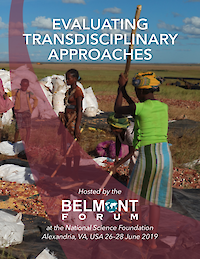
The Evaluating Transdisciplinary Approaches Workshop was convened by the Belmont Forum last summer. Workshop participants were part of a growing community of transdisciplinary research supporters and practitioners. The workshop goals were centered around participants exploring transdisciplinary research goals, metrics, and assessment. This workshop newsletter compiles the results of the workshop, outlines recommendations for how to evaluate transdisciplinary approaches, and provides current and past examples of transdisciplinary research.
Attending the virtual Science of Team Science conference
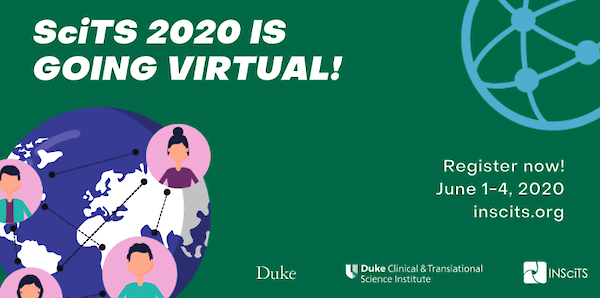
Bill Dennison, Heath Kelsey, and Suzi Spitzer attended the Science of Team Science conference, which utilized virtual session formats to highlight cross-disciplinary collaborative research. Bill spoke about IAN's role as a boundary organization that is helping transition academia to environmental problem solving. Suzi presented part of her dissertation on citizen science, featuring IAN's earlier work in developing a volunteer monitoring program for aquatic grasses in the Chesapeake Bay.
Preliminary Gulf of Mexico Coral Reef Report Card released!
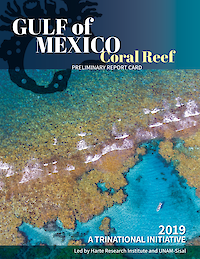
The Harte Institute for Gulf of Mexico Studies and the Autonomous University of Mexico at Sisal released the first-ever report card on the condition of coral reef ecosystems in the Gulf of Mexico. Heath Kelsey facilitated the two-day workshop to create the report card, which involved representatives from the US, Mexico, and Cuba. The report card results indicate that coral reef ecosystems are threatened everywhere, but some areas seem to be doing better than others. The main threats to ecosystem health include increasing ocean temperature, coastal development, and overfishing. In addition to the report card, a video was produced that documents the report card workshop and perspectives on coral reefs throughout the region.
Belmont Biodiversity Newsletter
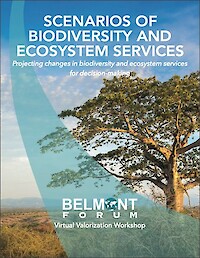
This document summarizes four projects funded by the Belmont Forum's Scenarios of Biodiversity and Ecosystem Services.
Belmont Global Change Newsletter
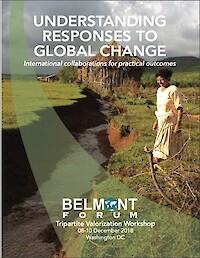
We facilitated a Belmont Forum synthesis workshop covering three groups of projects addressing global change, and produced a summarizing newsletter.
Texas Coast Report Card
IAN staff and HRI scientists collaborated to produce the 2019 Texas Coast Ecosystem Health Report Card. The coastline scored a B- (80%), indicating moderately good ecosystem health.
Co-developing watershed report cards in Detroit

IAN is partnering with Council Fire, LLC, the Erb Family Foundation, and The Clinton River Watershed Council, Friends of the Detroit River, Huron River Watershed Council, River Raisin Watershed Council, and Friends of the Rouge River, to create socio-environmental report cards for these 5 rivers, and a report card that integrates the results into an assessment of the Detroit Michigan region. This ambitious project is a collaboration with local stakeholders to develop a shared understanding and vision for each watershed, indicators that can reflect on the social, cultural, economic, and environmental values within that vision, and analysis of data to assess progress toward achieving it.
Darwin Harbour Integrated Report Card now available
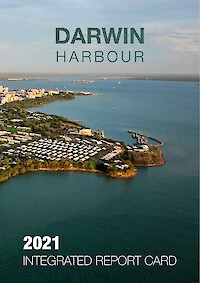
The Darwin Harbour Integrated Report Card was released on October 12. This report card has been developed through extensive consultation with stakeholders from the Darwin Harbour region and relies heavily on their knowledge and expertise.
Initiated by the Darwin Harbour Advisory Committee, a series of workshops were held in March 2020, representing the first step in this report card journey. Stakeholders from government, Indigenous communities, industry, academia and non-government organisations gathered in and around Darwin Harbour to conceptualise the harbour and its catchment, identify the environmental, social, Indigenous cultural and economic values of the region, and discuss indicators and thresholds that could be used to assess these values.
A total of 12 values were identified from these workshops and numerous potential indicators were proposed. The final choice of indicators used in this inaugural report card were ultimately dictated by data suitability and availability. In some instances, no data were available to confidently assess the health of certain values. In August 2021, report card findings were presented back to the stakeholders for their review and input.
2021: a year in review
IAN productivity remained high in 2021. Through staff changes and the ongoing COVID-19 pandemic, we continued to collaborate effectively with partners across the globe to assess and encourage respsonsible environmental stewardship. Report cards, newsletters, and workshops forged ahead, many the result of long-standing productive partnerships. Thank you to all of our collaborators, partners, colleagues, and staff for a great year, and here's to another great year in 2022!
Stakeholder workshops for the White River Report Card
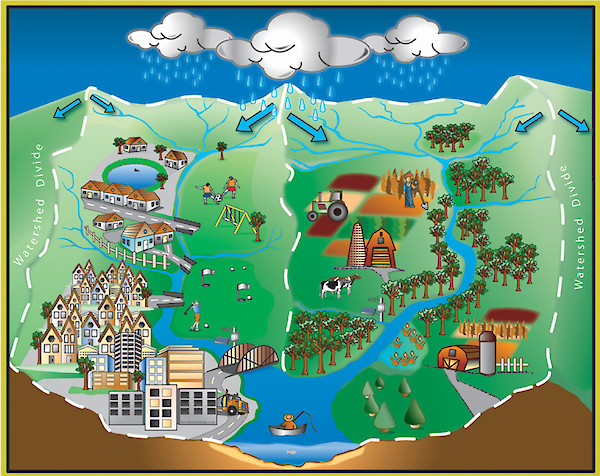
IAN has been helping the White River Alliance create a report card for the Upper White River, which flows through Central Indiana cities including Muncie and Indianapolis. The first stakeholder workshops were held in March with three separate 1.5-hour sessions, held at different times to maximize the number of participants (115!) that could attend. The workshops were conducted using an on-line whiteboarding platform, which is a flexible and engaging way for stakeholders to interact and provide input. Common values included recreation, wildlife and clean water, while threats included sewer overflows, land development, pollution, and public awareness. Next steps will be to work with stakeholders to identify ways to measure progress toward achieving goals for these topics.
Pacific Ocean Pathways Project Science-Society Council Meeting
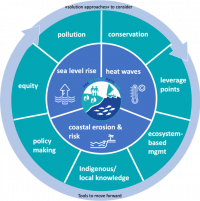
The Pacific Ocean Pathways project (PACPATH) is a Collaborative Research Action supported by the Belmont Forum to develop sustainability pathways for Sustainable Development Goal 14 (Life Below Water) in Pacific Island Countries. As a transdisciplinary project, our most important imperative is to work closely with stakeholders to design the research program, so that results are relevant to local interests. The PacPath Science-Society Council (SSC) met in April to create consensus about the project scope. The SSC has stakeholder representation from numerous Pacific Island Countries; during the meeting, SSC participants selected Marine Heat Waves, Coastal Erosion, and Sea Level Rise as primary topics. Stakeholders will explore these topics our first workshops in October 2022.
University of the South Pacific Seminar on SDG 14 Indicators for Pacific Island Countries
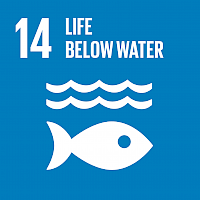
Heath Kelsey provided a virtual seminar to the faculty and students at the University of the South Pacific on co-developing developing indicators related to Sustainable Development Goal 14 (Life Below Water) in Pacific Island
Countries. The seminar is part of the Pacific Ocean Pathways project (PACPATH). We discussed approaches for co-developing indicators that are relevant to local concerns, and some issues related to applying SDG targets
and indicators at local scales. The SDGs are a global initiative, so targets and indicators may not always be relevant to local issues. Mapping locally-derived and SDG indicators may help streamline efforts to report on SDG progress, while also providing useful information to local management.
Paper Publication: the Role of Understanding, Trust, and Access in Public Engagement with Environmental Activities and Decision Making
Heath Kelsey co-authored a paper with colleagues from the University of South Carolina Arnold School of Public Health on the importance of communication and trust in community-based research. The study evaluates perceptions of academic investigators within the Center for Oceans and Human Health and Climate Change Interactions on science communication needs and the importance of trust with communities in which they work. The results will be used to improve training for investigators working with communities to address environmental science and public health concerns.
Setting the stage for the UMCES Chesapeake Global Collaboratory
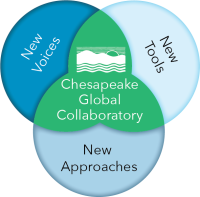
The UMCES Chesapeake Global Collaboratory (CGC) is a new initiative to generate accelerated solutions to big problems by engaging diverse voices, novel approaches, and innovative tools. IAN is helping UMCES to design and facilitate the meetings and events to continue to advance this initiative with faculty and external partners. On August 3rd, a lunchtime webinar was held for all of UMCES to learn about the progress of the CGC and to participate in its ongoing development. An overview of the CGC was given followed by a presentation of specific research projects from UMCES faculty that would fall within the Collaboratory structure. The next milestone for this project will be the Chesapeake Global Collaboratory Summit, which will take place on September 28–29 at the Rita Rossi Colwell Center in Baltimore, MD. It will feature plenary speakers Fred Tutman, ShaShi Shekhar, and Dr. Erica Key.
The White River Report Card is complete!
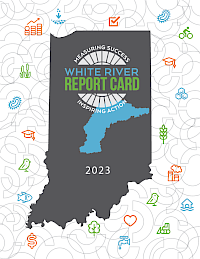
The White River Alliance led a coalition of partners to create the 2023 White River Report Card, which was released at a community event in late June 2023. IAN has been advising the White River Alliance in the creation of the report card since 2021. The Upper White River Watershed encompasses a 2,720 square mile area within central Indiana, including Indianapolis, and extends across sixteen counties. This first White River Report Card was co-created with over 200 stakeholders from the community, business, industry, government, agricultural, conservation, and utility sectors. In addition to being a natural ecosystem, humans use and depend on the river for drinking water, irrigation, recreation, drainage, industry, wastewater, and many more. The Report Card includes sections for Land, Water, and Community, and includes 16 individual indicators scored for 9 regions within the Upper White River Watershed. The Upper White River received a C on its first report card, with relatively poor scores for Wetlands, Bacteria, and Environmental Burden, but better scores for Education, Aquatic Life, Sediment, and Education.
Peer-Reviewed Publications
We published 10 peer-reviewed papers spanning a variety of environmental topics. Here are a few highlights:
- Effects of point and nonpoint source controls on total phosphorus load trends across the Chesapeake Bay watershed, USA (Environmental Research Letters, Qian Zhang)
- Rise of Ruppia in Chesapeake Bay: Climate change–driven turnover of foundation species creates new threats and management opportunities (Ecology Sustainability Science, William Dennison, Jonathan Lefcheck)
- Socio-ecological analysis of the eutrophication in Chesapeake Bay, USA (Frontiers in Marine Science, María Esther Leyva Ollivier, Heath Kelsey)
IAN attends the UMCES Convocation and Commencement
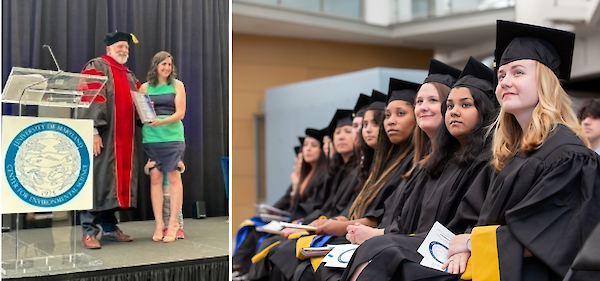
The UMCES Convocation and Commencement activities were held at the Rita Rossi Colwell Center at the UMCES Institute for Marine and Environmental Technology in Baltimore on May 30 and 31. Activities included good discussion on visioning for the university and especially around the Chesapeake Global Collaboratory. IAN staff and faculty attending this year were Ms. Alexandra Fries, Mr. Nathan Miller, and Drs. Conor Keitzer, Heath Kelsey, Katie May Laumann, and Vanessa Vargas-Nguyen. One highlight was Alex receiving the 2024 President’s Award for Outstanding Research Support! Congratulations Alex!! Note Alex's daughter on stage with mom! The other highlight of course, was the commencement itself – 18 students received their degrees!
IAN attends Future Earth General Assembly meeting in Helsinki, Finland
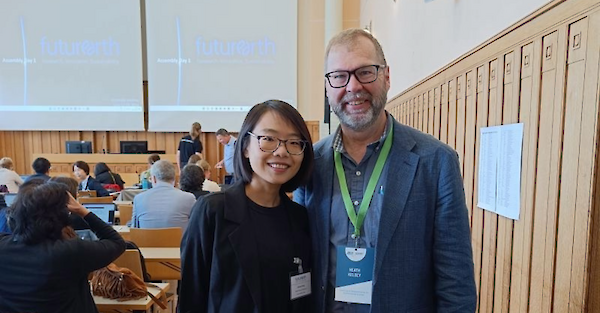
As the Future Earth Coasts (FEC) US International Project Office lead, Heath Kelsey attended the Future Earth General Assembly meeting in Helsinki, along with FEC Executive Director, Dr. Xiaoyu Fang, from East China Normal University in Shanghai, China. Two full days of meetings addressed the science and research directions for Future Earth, along with business and management questions. Highlights were the discussion around science and research needs from a global perspective. Of special interest were discussions around the issue of scale—how can global research questions be translated into action at the local scale? And of course, meeting Xiaoyu in person for the first time was the highlight of the whole trip!
IAN develops new relationships in Shanghai, China
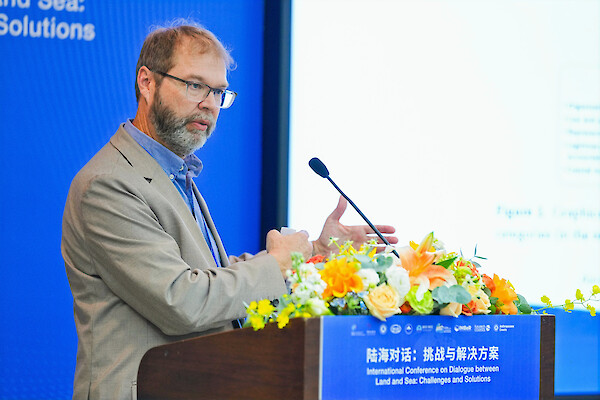
From November 17–24th, Heath Kelsey was invited to Shanghai, China by East China Normal University, to present work on a Future Earth Coasts project called, “Tour de Coasts,” which surveyed researchers and practitioners in the Future Earth Coasts network (and beyond) about global perceptions of sustainability issues, challenges, and definitions. The presentation was part of a mini-conference sharing research on heavily urbanized river deltas. Following the meeting, we explored opportunities to work together to convene multi and transdisciplinary teams to address broad goal-setting and assessment needs in these complex deltas. Research in these systems often focuses on modeling parameterization, calibration, and optimization, especially as it relates to sediment dynamics and geomorphology. As the USA International Program Office for Future Earth Coasts, IAN is being asked to codesign an approach for visioning, goal setting, and progress tracking to engage diverse stakeholder interests. Also, while in Shanghai, Heath was able to meet with the Shanghai Academy of Environmental Sciences (SAES). A team from SAES visited IAN in Annapolis in October; by happy coincidence, Heath was able to visit them in Shanghai the following month, to discuss opportunities for socio-environmental report cards in the Yangtze River estuary. Discussions are ongoing to further develop this relationship.
UMCES Centennial Celebration
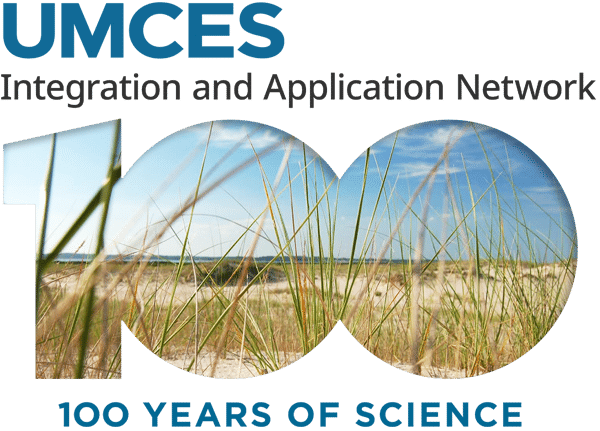
UMCES held several celebration events in January and February at the Chesapeake Biological Lab (CBL), Appalachian Lab (AL), Horn Point Lab (HPL), and Institute for Marine and Estuarine Technology (IMET). Rosh Nair, Alex Fries, and Heath Kelsey from IAN attended the celebration at IMET on February 6. Speakers included IMET Executive Director Dr. Russell Hill, USM Chancellor Dr. Jay Perman, DNR Secretary Josh Kurtz, Deputy Secretary for MDE Suzanne Dorsey, and, of course, UMCES President Dr. Fernando Miralles-Wilhelm. It was inspiring to hear what people had to say about the impact that UMCES has had on Maryland’s environment, and it was wonderful to celebrate the 100th anniversary of this great institution together. Of specific relevance to IAN, Secretary Kurtz noted the importance of interdisciplinary applied science and the example that the Chesapeake Report Card provides, Deputy Secretary Dorsey talked about the need for engaged scholarship, and President Miralles-Wilhelm noted how the Chesapeake Bay Report Card serves as a model for other groups in the US and worldwide.
Find more information on the UMCES Centennial here.
Meet the Scientist Series: Heath Kelsey
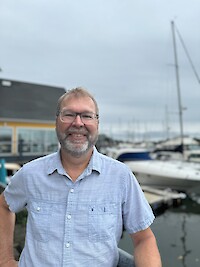
Each journey to UMCES is unique. It's time to meet the people of IAN and hear their stories. We'll feature a different member of the team each month to get to know what makes them tick!
Hi everyone, my name is Heath Kelsey, and I’m the Director at the UMCES Integration and Application Network. My journey to a research university like UMCES isn’t a traditional one: I’ve worked on landfills with an environmental engineering firm, served as a Peace Corps Volunteer in the highlands of Papua New Guinea, and as a statistical ecosystem modeler for NOAA. Each of these positions convinced me that science can help create a better future. After all those other jobs, I started at UMCES in 2009, initially managing the Chesapeake Bay Report Card partnership with NOAA in Oxford, MD, called “EcoCheck.” I got a crash course in science communication and report cards from IAN alumnus Caroline Wicks, and from there it has been a fantastic ride to the best job in the world. I get to work with amazing colleagues here at IAN, UMCES, and with our partners, helping communities all over the world use science to design a vision for a healthy future, figure out how to get there, and track progress. It’s an amazing thing to see community members from very different backgrounds come together for a better future. I can’t believe I get to do this stuff! Outside of work, I like hiking, biking, boating, and traveling!
If you value research like Heath’s, consider donating to IAN here.
IAN speaks at Blacks of the Chesapeake event in Annapolis
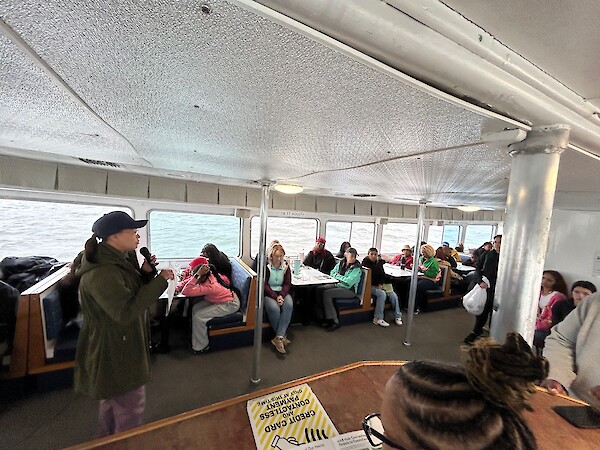
Vanessa Vargas-Nguyen and Heath Kelsey were invited to talk to high school students about the linkages between our environment and human health. About 75 students from four schools attended a series of events designed to connect them with their environment, including African American cultural history in the bay region. IAN’s role was to summarize the Coastal Environment and Community Health course that Vanessa and Heath taught in Fall 2024, which explored the impacts of environmental conditions on human health. Health effects related to water quality, air pollution, intense heat, flooding and sea level rise, harmful algal blooms, plastics, environmental justice, and community capacity were discussed. Many of the students were familiar with environmental justice concepts, water quality, and sea level rise issues, which is very encouraging. It was great to be able to have these discussions in the context of environmental justice and climate change. Thank you to the Blacks of the Chesapeake for arranging the event and for including UMCES!
Coastal adaptation in Nova Scotia

Heath Kelsey attended a meeting to discuss international responses to climate change in coastal communities, at Thinkers Lodge in Pugwash, Nova Scotia in August this year. The meeting was part of Thinkers Lodge’s continuing commitment to support meetings that address science and societal issues. Hosted by Future Earth Coasts and Thinkers Lodge, fifteen scientists, practitioners, managers, and indigenous representatives from Australia, Canada, Mexico, the Mi'kmaw Nation, USA, and the West Indies were invited to share their perspectives on coastal climate adaptation. Over three days of meetings, we identified key issues, challenges, and ways forward, and convened a local meeting to give the Pugwash community a sense of our discussions and to solicit their valuable insights. For a full description of the meeting and the very interesting history of Thinkers Lodge, read the accompanying blog.
Chesapeake "Bay-kery" at the HPL Open House
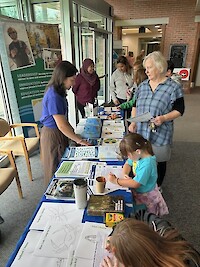
Ann Foo and Heath Kelsey attended the Horn Point Lab’s Open House on October 11th this year, with help from Shaima and Ney, visiting fellows with the US State Department’s Young Southeast Asia Leadership Initiative (YSEALI) program. Our theme this year was the Chesapeake “Bay-kery.” We provided recipe cards for a healthy and resilient bay, stickers with a Blue Crab Bread Roll, Terrapin Bun, and Oyster Cream Puff, in addition to IAN’s report cards, and drawing activities for kids. The open house was well attended and, as always, we really enjoyed talking with everyone who came by. It is encouraging that so many people are interested in Chesapeake Bay science and status. Special thanks to Ann Foo for coordinating all the moving pieces to make this a success!
Mega-Delta Conference in Shanghai
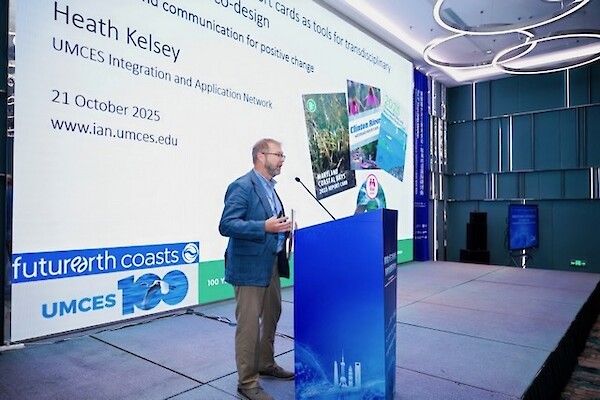
Heath Kelsey attended the 4th annual Mega-Delta Conference, which was hosted by The State Key Laboratory for Estuarine and Coastal Research at East China Normal University, in Shanghai, China from October 19–22. River delta systems are important hubs for trade and economic development, support large human populations, and provide vital ecosystem functions. This conference focused on research and applied solutions that account for the massive pressures from urbanization, transportation, pollution, resource use and climate change. We (Future Earth Coasts) have also been working with other partners, including Future Earth Asia, the Shanghai Academy of Environmental Science, Living Deltas Hub, and Council Fire LLC, to develop a program for socio-environmental report cards and collective action for river delta systems, beginning in Asia and expanding to other delta systems worldwide. To learn more, read Heath's recent blog about the conference.
Learning from our international fellows
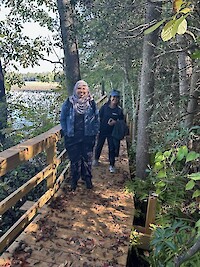
IAN had two visiting fellows from the State Department’s Young Southeast Asian Leaders Initiative (YSEALI) Professional Fellows Program for Fall 2025. Shaima Misli from Brunei and Genea Nichole “Ney” Cortez from the Philippines were with us throughout October, which was a really active time. They attended the UMCES Centennial Celebration in Baltimore, experienced the press event for the Healthy Harbor Report Card release at Baltimore’s Inner Harbor, helped IAN at the UMCES Horn Point Lab’s Open House, and had a field visit to the Jug Bay Wetlands Sanctuary. Shaima and Ney got to do a lot while they were here, and we think they got a good taste of sustainability issues in the region. Likewise, we got a feel for important sustainability concerns in their home countries. We really enjoyed hosting Shaima and Ney, and we look forward to continuing to work with them in the future.